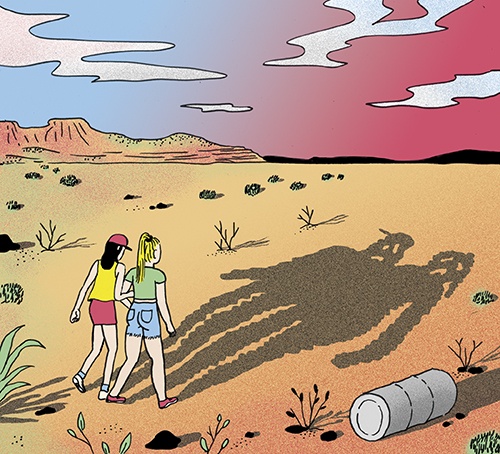 Illustration by Aisha Franz.
Illustration by Aisha Franz.
No Country for Young Women
Joni Murphy’s Double Teenage grapples with typical adolescent girldom. And, as Shannon Tien writes, that means violence is never far away.
EVERY THURSDAY NIGHT, since forever ago, Celine has watched Law & Order with her father after her mother goes to bed. Sometimes she stays for the whole show, and other times just for the first five minutes in which the crime is set up: “some young woman raped, some rich man bludgeoned, plot lines taken from real-life crimes.” She is comforted by the weekly cycle of a brutal attack followed by near-instant justice. “It was all so fictional,” she muses, referring to the latter. Celine, only just entering adolescence, is already wise to the dangers of being female.
As Celine enters her later teenage years, the ritual morphs. Some Thursdays, motivated by boredom, she runs a bath and sits, half submerged, listening to the faint echoes of the theme music. She examines her body and criticizes its flaws, brimming with self-loathing. Then, one night, her ritual becomes something else altogether. Measuring ...





